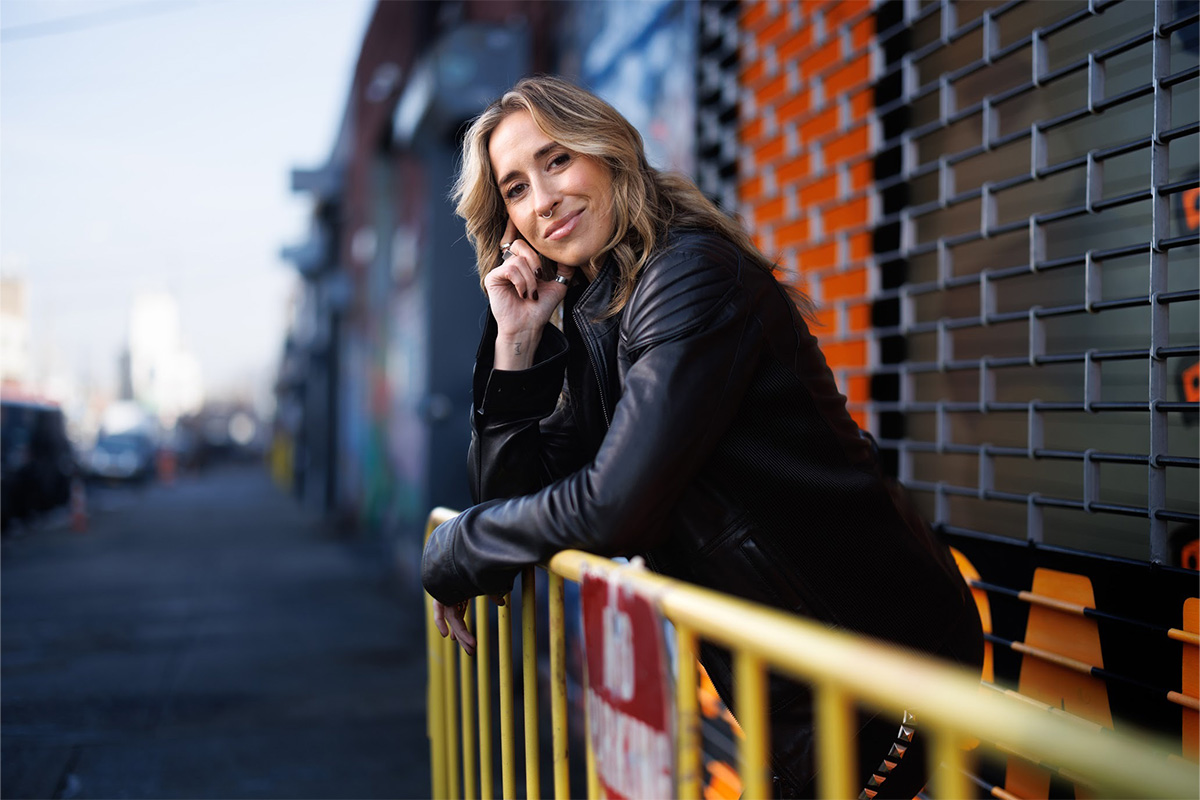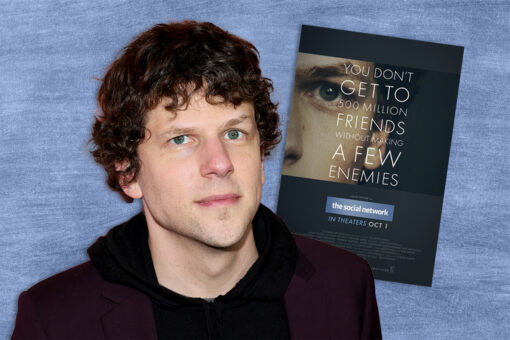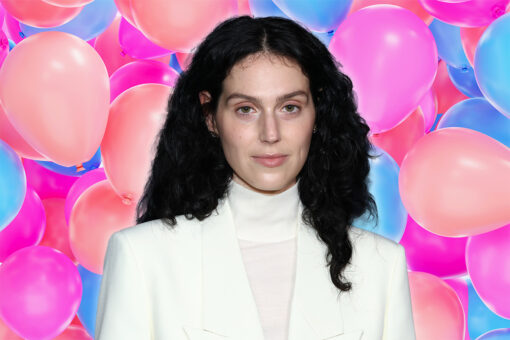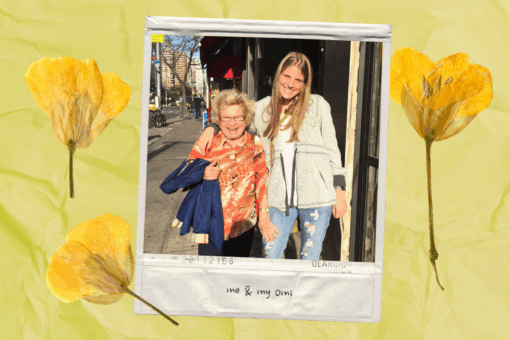Before last year, I had never encountered a therapist like Dr. Sara Glass.
I first met her late 2024. I was asked to moderate a panel on Jewish women’s memoir at the 2024 New York Jewish Book Festival and Dr. Glass’ “Kissing Girls on Shabbat” was among the books in conversation. I would be remiss to omit that I was taken with each of the remarkable books I read and panelists I came to know in preparation for the panel. (Shout out to “How to Share an Egg” by Bonny Reichert and “South of My Dreams” by F.K. Clementi.) But it was “Kissing Girls on Shabbat” that I felt reverberate in my body. As a queer Jew, I was astounded by Dr. Glass’ story of burying her queer Jewish identity to survive in the Hasidic community she was born into at the same time that mental health struggles within her family called her to become therapist.
I don’t think it’s a spoiler for her book to tell you that Dr. Glass ultimately left the Hasidic community with her two children in order be her full self and to pursue a career in the mental health field. She’s now an out-and-proud Jewish psychotherapist serving as the clinical director of Soul Wellness NYC, a private practice in Manhattan, a clinical supervisor for the non-profit organization Jewish Queer Youth and, of course, a published author. If you’re having trouble picturing her, let me just say that she has a lot of tattoos, a septum piercing, a really calming demeanor and the clinical knowledge to back it up.
Basically, she’s really fucking cool. And what’s even cooler is that Hey Alma is partnering with Dr. Glass for a new social media series called “As a Jewish Therapist.” (You can read more about that here.)
Ahead of the series’ launch, Dr. Glass sat down with Hey Alma to chat about being a queer, formerly Hasidic Jewish mental health professional, why Jews are so unbelievably anxious and partnering with Hey Alma on “Ask a Jewish Therapist.”
This conversation has been lightly edited and condensed for clarity.
Why did you want to become a therapist?
Oh, I wanted to become a therapist so I could figure out how to not go crazy. And that’s because I had grown up with mental illness in my family. I thought, if I get the highest degree possible in this arena, I can’t possibly become vulnerable to mental illness on my own, and perhaps I could even figure out how to help people in my family who are struggling.
Is that a common line of thinking with therapists in your experience? They wanted to get into the mental health field because of familial connections with mental illness?
You know, I’ve never really met an excellent therapist who doesn’t have some level of pain. And I think that pain we have witnessed is what draws us to try and find answers and help. Another way to say this is, I don’t know if I know any therapists who had a really good childhood. But that’s a little bit more extreme.
What would you say is a key to finding a “good therapist”?
It should be a little bit of a process, and people should not be afraid to interview therapists just like you would interview employees, or you’d get interviewed for a job. There’s no way for us to know on first contact with somebody if it’ll be a good fit. We date people for a while before we marry them, for example. But some of us have this perception that therapists know things. They’re the authority and we should just trust them. And I would say: Don’t. Don’t. Therapists are just human beings with different levels of experience and degrees, so allow yourself the permission to vet and check in with a few different therapists before you make a decision. And even then, you may want to try a few sessions with somebody and listen to your gut. If your gut is feeling safe and comfortable with that person, great! If your gut is not feeling safe and comfortable, it doesn’t matter how many degrees they have on their profile. That’s just not a great person for you.
I feel like in my own experiences with therapy, I’m such a people pleaser that I’ve sometimes gone into intake sessions with the goal of getting the therapist to like me. And then I come out of it realizing I should’ve asked way more questions.
My favorite thing is when people call me and they’re like, “I’m interviewing several therapists, so you’re one of three people I’m seeing this week.” And I’m like, “Hey, excellent.” Because I only want to work with you if I’m the right person, you know?
For sure. I’ve found that a lot of my friends or people I know have gravitated towards trying to find a therapist who shares parts of their identity with the hope that maybe they’ll understand them better. Do you think there’s anything to that?
It could be so helpful to have a therapist with a shared understanding and shared experience. At the same time, that’s not always accessible. It could be hard to find someone within your budget or on your insurance that shares all the identity factors. And so I think the next best thing would be to find a therapist that has experience with that population. For example, at my practice Soul Wellness, I supervise everybody on the team, and we work a lot with Jewish queer cases, because those are the patients that come to me. And so these therapists understand some of the dynamics that Jewish people may experience. But I think we can’t discount identity. I do think identity matches are so important. And if you can’t get that, then at least someone with experience working with your cultural population could be good.
I know therapists will usually have on their website what their specialties are. But are therapists upfront about if they’ve had experience with a certain group of people?
That’s a good question. I think some therapists who are not part of a specific culture might be hesitant to claim the space from other therapists who are. And so they may not always put it on their profile, but you can ask.
On to your memoir: It’s almost been a year since it’s published. How do you feel about it being out in the world for this long?
I am so grateful for the way it’s been received. I’ve been so touched. One of my biggest fears was that people would just not understand the layers of the story, the nuance, and think I’m speaking out against my former community when I’m speaking out for change in a system and a people that I love. I was afraid some would lump my story together with the story of anybody else who’s ever left anything. What I tried so hard to do in my book was show compassion for the community that raised me, and show the good sides of the people who helped me from within the community. I really wanted to make the point that we could be better. Jewish spaces can be better. Orthodox spaces can be better for queer folks and for folks with mental illness.
I have found my readers got it. I read the comments on Goodreads, Amazon and Audible, and most often, readers have understood my intention. And it’s allowed them to find similarities in their own lives and to find strength for the decisions they want to make. So that’s been beyond my expectations. There will always be people who don’t understand the layers. And that’s OK, you know? When you put art out into the world, people are going to see it in a way that partially is representative of how they’re conditioned to view the world. So I don’t really take that too much to heart. I just do appreciate that on a global scale, it is having the impact I want it to have, which is for people to not make a quick snap judgment of a community based on my story, and to use it as a chance to improve conditions around themselves for people who may not fit into their own worlds, and to find the strength to seek their own freedom in various ways.
It’s so interesting to me to see how over the last few years, stories of people leaving ultra-Orthodox Judaism has sort of become its own genre, though I hesitate to call it that because grouping all stories of people leaving Orthodox Judaism together feels very flattening of everyone’s individual experience. All that to say, it’s heartening to hear that you feel people have taken your story for what it is.
I think it’s important not to underestimate our audiences and to give people truth. Truth resonates.
How did your memoir come to be? When did you realize that you wanted to write something?
I started writing the book in 2018 about a year after leaving the Ultra-Orthodox community and coming out of the closet.
Wow.
And I knew then that I was starting to feel the taste of freedom and to feel the joys of living as myself. But when I looked back, just 11 miles away from where I was in New York City, I saw my entire former community. There were so many queer people who are still getting arranged married at young ages, so many people who didn’t fit in and felt like they didn’t belong because of mental illness or family dysfunction or any one of the other number of reasons why someone would feel like they don’t conform in a culture that functions in a very uniform manner. I just felt like I had to do something. I was already a psychologist. I already gave lectures about psychotherapy. But it felt like the real way to reach people would be through story. So I decided to tell my story.
It’s so impressive that you were only away from your original community for such a short amount of time before you started writing about it. Was it emotionally taxing to do that?
Yeah, I think that’s why I had to write the book about five times. I processed it all through writing.
Now that you’re outside the Orthodox Jewish community, what ways do Jewish ritual and culture touch your life?
My children and I love to celebrate holidays in the way that feels right to us. My daughter asked me to make brisket for Shavuot, because that’s a holiday food we always had in the Orthodox community. And I’m like, OK, you want brisket. That’s what feels holiday-ish to you. I’m going to have to make brisket. I’ll do it. We love certain traditions. We celebrate Hanukkah for some of the nights and we do gifts. But more importantly, other than the ritual, there’s a value system for myself and my children that’s all very close to our hearts. Both of my children have expressed to me they want meaningful careers. They want to do things that help others. And that’s not a uniquely Jewish phenomenon, but at the same time, it’s one that for us, is borne of our Jewish education and the concept of tikkun olam. And they’re so supportive of me telling my story as well. Because they feel like I’m taking something we’ve been through, and helping others. On a value-based level, we feel really Jewish.
On a serious-but-not-serious note: Why, in your opinion, are Jews so anxious?
Oh, my God, we’re the worst. I was just talking to a friend about this last night. I was like, I wake up most days anxious. How to say this in a way that’s not going to make us sound completely nuts… I mean, probably because of intergenerational trauma. Because we’ve been through situations where everything was taken from us and it’s passed down through the epigenetics of the post-Holocaust generations. What do you think?
The epigenetic piece is definitely there. And I think because the nature part is so strong, it becomes nurture. That the anxiety is disseminated culturally, too. For example, my mom converted to Judaism and my dad’s not Jewish, so I don’t have Jewish ethnicity. But I think just growing up in the Jewish community and around Jews who are anxious by nature, really informed my own anxieties. Like I saw people in my community being anxious about something and so I was like, I should be anxious about that, too.
It’s really wild. When I have Jewish clients, I’m like, OK, they’re gonna ask me 17 questions about how long the process will take, what exactly I’m doing and how this will help. And when I have non-Jewish clients, I feel like I’m just here for the process.
I also think that questioning things is so fundamental to Judaism. And in the process of questioning there can be an unavoidable physical response that manifests as anxiety.
Yeah. I think that’s a good point. The genetic, intergenerational component, and the way we’re taught to question everything.
Anxiety is probably the number one mental health issue that people talk about in the Jewish community. But do you think there are other mental health conditions or things that the Jewish community should be talking about more?
To go back to anxiety for a second, what’s underlying that is fear. And so many of us operate out of fear. Out of what if? What if I lose the respect of my peers? What if I never find a match or a marriage partner? What if it all falls apart on some level? The more we as a community can work on like, what if we weren’t as afraid? How would this look today? What decisions would we make if we made them from a place of feeling secure?
On other mental health conditions that we should be more aware of, I hesitate to get diagnostic on it. But I think there’s a social comparison that’s common in communities where we’re so close knit, it’s really hard not to compare ourselves to others. And not judging ourselves so harshly against the standards of those around us is something we can all work on.
I really love what you said about coming from a place of being secure as opposed to being afraid. This will most likely be something that you touch on in the Ask a Jewish Therapist series, but right now, a lot of Jews, and people from other vulnerable communities, are fearing for their safety. How can someone go about reframing their mindset to feel more secure?
To start off, it’s important to be socially conscious and aware of what’s going on in the world. We don’t want to overindulge on the news. But at the same time, it’s not healthy to live under a rock and to believe that everything will innately be fine. In the U.S., there are bills being passed that discriminate against vulnerable people all the time and we may need to take steps to protect ourselves or loved ones.
That said, I think there are a few things that come to mind for how to combat that overwhelm. One is gratitude. Remembering what we do have. For me, when I look at all the bills being passed against queer and trans people and the threats to vulnerable populations, I also try to remember, well, you know, less than 10 years ago I was wearing a wig and destined to just birth multiple children. So right now, at least I can be out and have a partner and be proud in my current life.
I try to be grateful for wearing sweatpants out in the street and for being able to get a drink at Starbucks without being worried about surveillance or hell. So gratitude and community, finding solace in each other, finding connection in each other, I think those are the things that can get us through the really tough times.
Every week during Shabbat services, my synagogue makes space for people to share what they’re grateful for. And I remember when I first joined, it felt a bit cringey to me. And then, the more I leaned into it and let go of my own insecurities about being earnest, the more I found the ritual to be so wonderful and helpful.
It can feel like, stop giving me that embroidered pillow that says “Just be grateful.” I think Gen-Z is already conditioned against toxic positivity. There’s an art that I’ve been learning in 12-step recovery for myself of feeling grateful and also allowing yourself to feel anger and sadness and frustration. The toxic part is when you’re expected to feel grateful and then suppress the other feelings. I think that’s the sweet spot with gratitude.
Absolutely. So why did you say yes to partnering with Hey Alma on this mental health project?
It was such an easy yes because we’re so aligned. We both want to disseminate mental health information and positive Judaism and create a world where people feel good about feeling connected to Jewish community, and where it can be a resource for people as they’re navigating their lives.
Oh, and Hey Alma’s social media is super cool and fun. I laugh at it, I smile at it, I engage with it when it comes across my feed. It makes me feel more connected.
OK, last question. What brings you queer Jewish joy?
In my household I have a rainbow menorah and a Star of David rainbow flag. Those things make me happy. But I also partner with Jewish Queer Youth, and I get to help with the drop-in center and youth come from all over the tri-state area and have virtual groups that reach people beyond that. I get to see teens and young adults living as their out queer selves, even just for a little bit of time every week, and it just makes me so happy that they’ll have a future that I couldn’t even dream of and we’re creating a world that’s a safer space.



